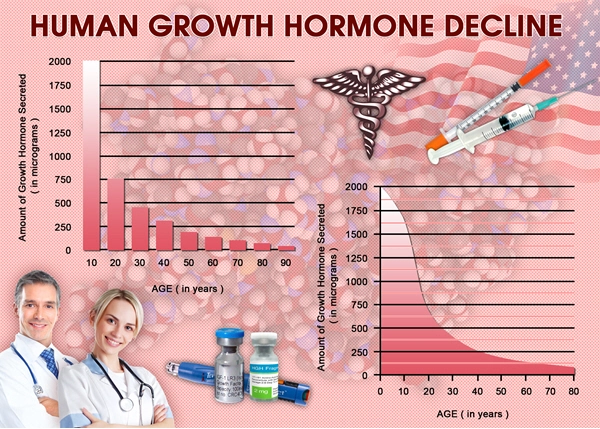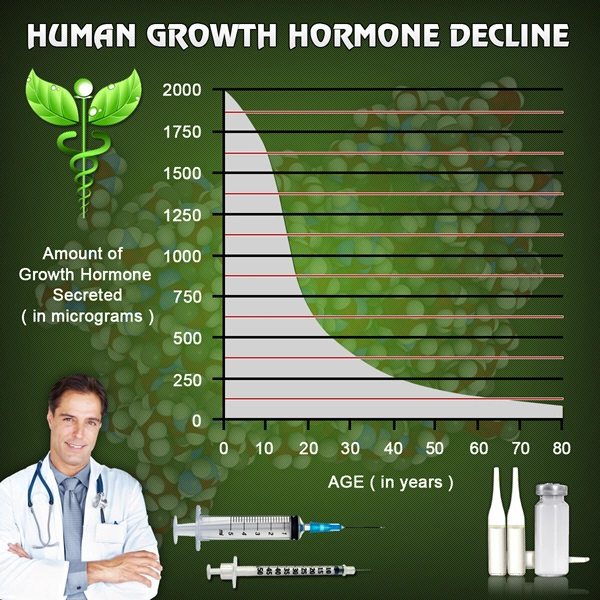Introduction
Kidney stones are a prevalent health concern among American males, often leading to severe pain and potential complications. Urology, the branch of medicine that focuses on the urinary tract and male reproductive system, emphasizes the importance of preventative measures. One such measure is the modification of diet and nutrition, which can significantly reduce the risk of developing kidney stones. This article explores the role of dietary strategies in preventing kidney stones, offering practical advice tailored to American males.
Understanding Kidney Stones
Kidney stones are solid masses made from crystals that form in the kidneys. They can be excruciatingly painful when they pass through the urinary tract. The most common types of kidney stones are calcium oxalate stones, which are particularly relevant to dietary interventions. Factors such as genetics, dehydration, and diet can influence the formation of these stones.
The Impact of Diet on Kidney Stone Formation
Diet plays a crucial role in the prevention of kidney stones. Certain foods can increase the risk of stone formation, while others can help mitigate this risk. For American males, understanding these dietary influences is essential for maintaining urological health.
Hydration: The First Line of Defense
Adequate hydration is fundamental in preventing kidney stones. Water dilutes the substances in urine that lead to stone formation. American males should aim to drink at least 2 to 3 liters of water daily, increasing intake during hot weather or after physical activity. Fluids such as citrus juices, which contain citrate, can also be beneficial as citrate binds to calcium in the urine, reducing the risk of stone formation.
Calcium Intake: A Delicate Balance
Contrary to popular belief, dietary calcium does not increase the risk of calcium oxalate stones. In fact, adequate calcium intake can help bind oxalate in the intestines, preventing its absorption into the bloodstream. American males should ensure they consume recommended levels of calcium, primarily through dietary sources such as dairy products, leafy greens, and fortified foods.
Reducing Oxalate-Rich Foods
Oxalate is a naturally occurring substance found in many foods, and high levels can contribute to kidney stone formation. American males should be cautious with their intake of high-oxalate foods such as spinach, rhubarb, beets, and nuts. Moderation, rather than complete avoidance, is key, as these foods also offer important nutrients.
Limiting Sodium and Animal Protein
High sodium intake can increase calcium levels in the urine, promoting stone formation. American males should aim to reduce their salt consumption by avoiding processed foods and using less salt in cooking. Similarly, a diet high in animal protein can increase uric acid levels, another risk factor for kidney stones. Balancing protein intake with plant-based sources can help mitigate this risk.
Citrate and Potassium: Allies in Prevention
Citrate and potassium are essential in preventing kidney stones. Citrus fruits, such as lemons and oranges, are rich in citrate, which can be consumed in juice form or as supplements. Potassium helps reduce calcium excretion in the urine. American males can increase their potassium intake by consuming fruits and vegetables like bananas, potatoes, and tomatoes.
Conclusion
Preventing kidney stones through diet and nutrition is a proactive approach that American males can adopt to maintain their urological health. By staying well-hydrated, balancing calcium intake, moderating oxalate-rich foods, limiting sodium and animal protein, and increasing citrate and potassium consumption, men can significantly reduce their risk of developing kidney stones. Consulting with a healthcare provider or a dietitian can provide personalized guidance, ensuring that dietary changes are both effective and sustainable. Embracing these dietary strategies not only helps prevent kidney stones but also contributes to overall health and well-being.

- Unraveling the Role of Phosphodiesterase Type 5 in Prostatic Health: Insights into Androgen Regulation and Urological Therapy for American Men [Last Updated On: January 3rd, 2026] [Originally Added On: February 20th, 2025]
- Unveiling Testosterone's Impact on Bladder Health Through Electron Microscopy Studies [Last Updated On: March 7th, 2025] [Originally Added On: March 7th, 2025]
- Alpha1-Adrenoreceptor Density, Testosterone, and LUTS Severity in American Men: A Comprehensive Analysis [Last Updated On: March 8th, 2025] [Originally Added On: March 8th, 2025]
- Understanding Urethral Atrophy in Men: Implications, Diagnosis, and Hormone Therapy Options [Last Updated On: March 8th, 2025] [Originally Added On: March 8th, 2025]
- Understanding Prostate Stroma Composition: Implications of Testosterone Normalization on Collagen and Elastin [Last Updated On: March 9th, 2025] [Originally Added On: March 9th, 2025]
- Unveiling the Role of Prostatic Acid Phosphatase in Monitoring Androgen Activity During Testosterone Replacement Therapy [Last Updated On: March 12th, 2025] [Originally Added On: March 12th, 2025]
- Exploring the Impact of Hormone Replacement on Pelvic Floor Function in Hypogonadal Men [Last Updated On: March 12th, 2025] [Originally Added On: March 12th, 2025]
- Exploring Post-Void Residual Volume Changes in Men with Low Testosterone: A Longitudinal Study on Hormone Replacement Therapy [Last Updated On: March 13th, 2025] [Originally Added On: March 13th, 2025]
- Exploring Urinary Proteomics: Unveiling Biomarkers for Lower Urinary Tract Dysfunction in Androgen-Deficient American Men [Last Updated On: March 15th, 2025] [Originally Added On: March 15th, 2025]
- Urinary Flow Cytometry in Hypogonadal Men: Pre- and Post-TRT Cellular Profiles [Last Updated On: March 16th, 2025] [Originally Added On: March 16th, 2025]
- Metabolomic Analysis of Prostatic Fluid in Testosterone-Deficient Men: Urological Insights and Implications [Last Updated On: March 17th, 2025] [Originally Added On: March 17th, 2025]
- TRT's Impact on Prostatic Blood Flow: Insights from Color Doppler Ultrasonography [Last Updated On: March 17th, 2025] [Originally Added On: March 17th, 2025]
- Prostatic Aromatase Activity and Estradiol-Mediated Hyperplasia in Aging Men on TRT [Last Updated On: March 19th, 2025] [Originally Added On: March 19th, 2025]
- Testosterone Deficiency Impacts Mitochondrial Function in Bladder Smooth Muscle of American Men [Last Updated On: March 19th, 2025] [Originally Added On: March 19th, 2025]
- Bladder Wall Thickness Correlates with Urodynamic Parameters in Men with Late-Onset Hypogonadism [Last Updated On: March 20th, 2025] [Originally Added On: March 20th, 2025]
- VUR in Hypogonadal Men: Bladder Neck Dysfunction and Hormonal Impacts [Last Updated On: March 20th, 2025] [Originally Added On: March 20th, 2025]
- Neural Density in Detrusor Muscle: Hypogonadism's Impact on Bladder Function in Men [Last Updated On: March 20th, 2025] [Originally Added On: March 20th, 2025]
- Testosterone Deficiency and Increased Kidney Stone Risk: Urine Sediment Analysis [Last Updated On: March 21st, 2025] [Originally Added On: March 21st, 2025]
- Androgen Therapy Enhances Urethral Pressure in Hypogonadal Men: UPP Insights [Last Updated On: March 21st, 2025] [Originally Added On: March 21st, 2025]
- HRT Impact on Urothelial Gene Expression in American Men: A Transcriptomic Analysis [Last Updated On: March 21st, 2025] [Originally Added On: March 21st, 2025]
- Testosterone Therapy: Monitoring PSA Kinetics and Safety Protocols for Prostate Health [Last Updated On: March 21st, 2025] [Originally Added On: March 21st, 2025]
- Androgen Deficiency Impact on Prostatic Neuroendocrine Cells in American Men: HRT Response [Last Updated On: March 22nd, 2025] [Originally Added On: March 22nd, 2025]
- Prostatic Inflammation in Hypogonadal Men: Histopathology and Testosterone Therapy Insights [Last Updated On: March 22nd, 2025] [Originally Added On: March 22nd, 2025]
- TRT's Impact on Prostate Health: Insights from Transrectal Shear Wave Elastography [Last Updated On: March 22nd, 2025] [Originally Added On: March 22nd, 2025]
- Uroflowmetry and Hormonal Levels in American Men with Androgen Deficiency: A Correlation Study [Last Updated On: March 23rd, 2025] [Originally Added On: March 23rd, 2025]
- Hypogonadism and Non-Bacterial Prostatitis: Inflammatory Profiles and Testosterone Therapy Benefits [Last Updated On: March 23rd, 2025] [Originally Added On: March 23rd, 2025]
- Testosterone Therapy's Impact on Prostatic Stromal-Epithelial Ratio in Hypogonadal Men [Last Updated On: March 23rd, 2025] [Originally Added On: March 23rd, 2025]
- Testosterone's Impact on Prostate Health via Gap Junction Proteins: American Men's Focus [Last Updated On: March 23rd, 2025] [Originally Added On: March 23rd, 2025]
- Quantitative Assessment of Autonomic Innervation in Testosterone-Deficient Neuropathy: Urological Insights [Last Updated On: March 23rd, 2025] [Originally Added On: March 23rd, 2025]
- LOH Impact on Bladder Compliance: Urodynamic and Hormonal Insights for American Males [Last Updated On: March 23rd, 2025] [Originally Added On: March 23rd, 2025]
- Urinary Exosomal microRNAs: Biomarkers for Hypogonadism and LUTS in American Men [Last Updated On: March 24th, 2025] [Originally Added On: March 24th, 2025]
- Prostatic Calcifications in Hypogonadal Men: Prevalence, Composition, and LUTS Association [Last Updated On: March 24th, 2025] [Originally Added On: March 24th, 2025]
- Androgen Deficiency Impacts Bladder Contractility in American Men: Proteomic Insights [Last Updated On: March 24th, 2025] [Originally Added On: March 24th, 2025]
- ART Modulates Apoptotic Index in Prostatic Epithelium of Hypogonadal Men [Last Updated On: March 24th, 2025] [Originally Added On: March 24th, 2025]
- Androgen Receptor Distribution in Hypogonadal Men's Lower Urinary Tract: Immunohistochemical Insights [Last Updated On: March 25th, 2025] [Originally Added On: March 25th, 2025]
- Testosterone's Influence on Bladder ECM Composition in Men: GAGs and Proteoglycans [Last Updated On: March 25th, 2025] [Originally Added On: March 25th, 2025]
- Testosterone Therapy's Impact on Prostate Health: A Histomorphometric Analysis [Last Updated On: March 25th, 2025] [Originally Added On: March 25th, 2025]
- AUM Insights: Testosterone Deficiency and Detrusor Activity in Men [Last Updated On: March 25th, 2025] [Originally Added On: March 25th, 2025]
- TRT's Impact on Prostatic Smooth Muscle: Electron Microscopy Insights [Last Updated On: March 25th, 2025] [Originally Added On: March 25th, 2025]
- Neurophysiological Impact of Testosterone Therapy on Bladder Sensory Afferents in Men [Last Updated On: March 25th, 2025] [Originally Added On: March 25th, 2025]
- TRT Impact on Uroflowmetric Parameters and Serum Hormones in American Males [Last Updated On: March 25th, 2025] [Originally Added On: March 25th, 2025]
- Prostatic Urothelial Metaplasia in Hypogonadism: Prevalence, Pathophysiology, and Testosterone Therapy Reversal [Last Updated On: March 25th, 2025] [Originally Added On: March 25th, 2025]
- Testosterone Fluctuations and Maximum Flow Rate Variability in Hypogonadal Men on TRT [Last Updated On: March 26th, 2025] [Originally Added On: March 26th, 2025]
- Doppler Ultrasonography Monitors Prostatic Flow Changes in Men on TRT [Last Updated On: March 26th, 2025] [Originally Added On: March 26th, 2025]
- PSMA Expression Dynamics in Androgen-Deficient Men Pre- and Post-ART: A Quantitative Analysis [Last Updated On: March 26th, 2025] [Originally Added On: March 26th, 2025]
- Mapping Prostatic Stromal ARs in Men with LUTS: Insights and Therapeutic Implications [Last Updated On: March 26th, 2025] [Originally Added On: March 26th, 2025]
- Testosterone Deficiency Impacts Bladder Function: Insights from Filling Cystometry [Last Updated On: March 27th, 2025] [Originally Added On: March 27th, 2025]
- Testosterone Therapy's Impact on Prostatic Growth Factors and BPH Risk in American Men [Last Updated On: March 27th, 2025] [Originally Added On: March 27th, 2025]
- Urodynamic Insights and Hormone Therapy for Detrusor Overactivity in Testosterone-Deficient Men [Last Updated On: March 27th, 2025] [Originally Added On: March 27th, 2025]
- Hormone Therapy Benefits for Postvoid Dribbling in Testosterone-Deficient American Men [Last Updated On: March 27th, 2025] [Originally Added On: March 27th, 2025]
- DSD in Androgen-Deficient Men: Prevalence, Urodynamics, and Hormonal Management [Last Updated On: March 27th, 2025] [Originally Added On: March 27th, 2025]
- Urethral Sphincter EMG in Hypogonadal Men: Testosterone's Impact on Urinary Function [Last Updated On: March 27th, 2025] [Originally Added On: March 27th, 2025]
- PIN Incidence and Monitoring in Hypogonadal Men on Testosterone Therapy [Last Updated On: March 27th, 2025] [Originally Added On: March 27th, 2025]
- Biochemical Impact of Testosterone Deficiency on Prostatic Secretions in American Males [Last Updated On: March 27th, 2025] [Originally Added On: March 27th, 2025]
- Hypogonadism's Impact on Bladder Neck Collagen and Urodynamics in American Men [Last Updated On: March 28th, 2025] [Originally Added On: March 28th, 2025]
- Bladder Sensation Mapping in Testosterone-Deficient Men: QST Before and After Hormone Therapy [Last Updated On: March 28th, 2025] [Originally Added On: March 28th, 2025]
- Nocturnal Polyuria in Testosterone-Deficient Men: Pathophysiology and Hormone Therapy Benefits [Last Updated On: March 28th, 2025] [Originally Added On: March 28th, 2025]
- TRT Improves Micturition Parameters in Hypogonadal American Men: A Study [Last Updated On: March 29th, 2025] [Originally Added On: March 29th, 2025]
- Neurogenic Bladder in Hypogonadal Men with Metabolic Syndrome: Urodynamic and Hormonal Insights [Last Updated On: March 29th, 2025] [Originally Added On: March 29th, 2025]
- Testosterone Therapy Enhances Detrusor Oxygenation in Androgen-Deficient Men: Polarographic Insights [Last Updated On: March 31st, 2025] [Originally Added On: March 31st, 2025]
- TRT Enhances Urethral Function in Hypogonadal Men: UPP Analysis Insights [Last Updated On: April 1st, 2025] [Originally Added On: April 1st, 2025]
- 3D-TRUS: Monitoring Prostate Health in American Men on Testosterone Therapy [Last Updated On: April 1st, 2025] [Originally Added On: April 1st, 2025]
- Estrogen-Mediated LUTS in Aging Men: Role of Prostatic Stromal Aromatase [Last Updated On: April 3rd, 2025] [Originally Added On: April 3rd, 2025]
- Testosterone Deficiency and Bladder Function: Impact and Improvement via HRT [Last Updated On: April 5th, 2025] [Originally Added On: April 5th, 2025]
- Testosterone Deficiency Impacts Bladder Myofibroblast Activity: Immunohistochemical Insights [Last Updated On: April 5th, 2025] [Originally Added On: April 5th, 2025]
- Prostatic Elastography: Monitoring Prostate Health in American Men on Testosterone Therapy [Last Updated On: April 6th, 2025] [Originally Added On: April 6th, 2025]
- Diurnal LUTS Variations in Hypogonadal Men Linked to Testosterone Rhythms [Last Updated On: April 6th, 2025] [Originally Added On: April 6th, 2025]
- Bladder Wall Fibrosis in Men: Grading and Hormone Therapy Benefits [Last Updated On: April 7th, 2025] [Originally Added On: April 7th, 2025]
- Revolutionizing Prostatic Health: Novel Techniques in Androgen Receptor Sensitivity Assessment [Last Updated On: April 8th, 2025] [Originally Added On: April 8th, 2025]
- Differentiating Prostatitis Symptoms in Hypogonadal Men: Benefits of Testosterone Therapy [Last Updated On: April 8th, 2025] [Originally Added On: April 8th, 2025]
- Intraprostatic T and DHT Levels in American Males Undergoing TRT: Insights and Management [Last Updated On: April 10th, 2025] [Originally Added On: April 10th, 2025]
- Testosterone's Impact on Prostatic Autophagy in Hypogonadal Men: TRT Effects [Last Updated On: April 11th, 2025] [Originally Added On: April 11th, 2025]
- OAB in American Men with Low Testosterone: Prevalence, Symptoms, and TRT Benefits [Last Updated On: April 11th, 2025] [Originally Added On: April 11th, 2025]
- Testosterone Deficiency and Bladder Afferent Nerve Activity: Electrophysiological Insights [Last Updated On: April 11th, 2025] [Originally Added On: April 11th, 2025]
- Predicting Prostatic Growth in American Men on TRT Using Mathematical Modeling [Last Updated On: April 12th, 2025] [Originally Added On: April 12th, 2025]
- TRT Enhances Periurethral Vascularity in American Men: Power Doppler Insights [Last Updated On: April 13th, 2025] [Originally Added On: April 13th, 2025]
- Urinary NGF: A Biomarker for LUTS in Testosterone-Deficient Men [Last Updated On: April 16th, 2025] [Originally Added On: April 16th, 2025]
- BIA: A Revolutionary Tool for Monitoring Prostate Health in Men on TRT [Last Updated On: April 16th, 2025] [Originally Added On: April 16th, 2025]
- PSSC Activity and BPH Risk in Hypogonadal Men on Testosterone Therapy [Last Updated On: April 17th, 2025] [Originally Added On: April 17th, 2025]
- CEUS Insights into Urethral Vasocongestion in Hypogonadal Men: Clinical Advances [Last Updated On: April 17th, 2025] [Originally Added On: April 17th, 2025]



List of USA state clinics - click a flag below for blood testing clinics.
Word Count: 593


















































